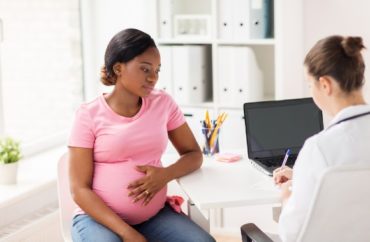
Prior research looked at pregnant women who were already in the hospital
A team of Danish medical school professors have concluded that pregnant women are not at a significantly higher risk for severe COVID reactions compared to women in general.
The paper, which has not been peer-reviewed and has been published as a preprint at MedRxiv.org, contradicts prior research on the subject. The researchers say that this is because other studies looked at women who were already in the hospital.
“Most previous population-based studies on SARS-CoV-2 infection in pregnancy have been among hospitalised patients,” the researchers said. The results “may have exaggerated risk estimates of severe outcomes because all cases of SARS-CoV-2 infection in the pregnant population were not included,” the team said.
The team included University of Copenhagen medical professors Anna Aabakke and Lone Krebs. Krebs also teaches obstetrics and gynecology at a Copenhagen, Denmark hospital.
Pregnant women at risk if they have underlying conditions, just like people in general
Instead, the team found that pregnant women are not at a higher risk of poor COVID outcomes, absent other underlying issues.
“Only 1 in 20 women with SARS-CoV-2 infection during pregnancy require admission to hospital due to COVID-19,” the researchers said. The paper also found that “severe outcomes of SARS-CoV-2 infection in pregnancy are rare.”
“Evidence indicates that pregnant women are not at increased risk of infection with SARS-CoV-2 compared to non-pregnant women,” the researchers said.
The paper gathered data from March 2020 to October 2020 and looked at 418 women who had COVID while pregnant. “Risk factors for hospital admission” included obesity, smoking and infection after 22 weeks of gestation.
These are similar conditions that have led to worse COVID outcomes in the general population.
“There were no differences in the rates of pre-eclampsia or gestational diabetes,” the medical professors said.
Furthermore, pregnant women with coronavirus were not at a high risk for blood clots, being admitted to an intensive car unit orr having a miscarriage.
“The rate of thromboembolic events and admission to an ICU was low, and we had no cases of maternal death during the study period,” the paper said. “The rate of early pregnancy loss did not vary between the groups after adjusting for exposure time.”
Babies safe from COVID, too
Babies born after their moms had COVID were safe, too.
“We found no difference between the groups regarding any of the delivery or infant outcomes,” the authors of the study said. “Adjustment did not change the results. We had no neonatal deaths among the children of [coronavirus] infected women.”
One paper found that babies did receive antibodies from their mom, but a Harvard medical professor said that the study did not find a significantly protective level of antibodies.
Harvard’s Galit Alter had previously conducted her own research that found antibodies are not passed to babies through the placenta, though she said the vaccine does pass on the antibodies.
The Danish researchers were also critical of the Centers for Disease Control and Prevention’s research on the topic.
A CDC study found that pregnant women were more likely than nonpregnant women to receive “invasive ventilation,” for example.
But that translated into a minimal difference — 2.9 percent of pregnant women needed invasive ventilation versus 1.1 percent of women who were not pregnant.
MORE: Mask mandates not associated with lower COVID rates: university biologist
IMAGE: Syda Productions/Shutterstock.com
Like The College Fix on Facebook / Follow us on Twitter





Please join the conversation about our stories on Facebook, Twitter, Instagram, Reddit, MeWe, Rumble, Gab, Minds and Gettr.